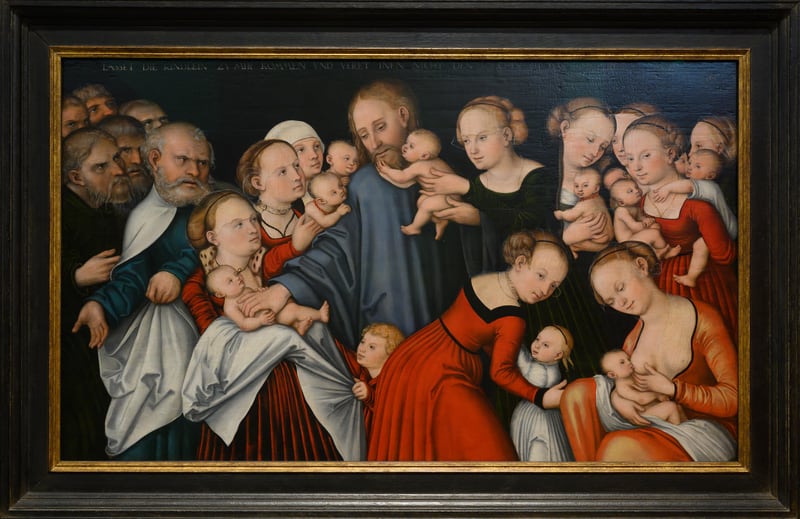Since the sexual revolution of the mid-twentieth century, and the proliferation of birth control, Western society has been shifting its perspective on having children. We have seen trends toward smaller families, and more people are waiting until their late twenties or early thirties before even beginning to have children. And an increasing number of couples are foregoing children altogether.
As Christians, how should we respond to these trends? Is it ok for Christian couples who don’t want children to choose not to have them? And if so, what reasons are acceptable for not having children
Married Christian couples should expect and desire children. But in limited circumstances, there may be God-honoring and God-ordained reasons to forego reproduction.
It is up to each couple who wrestles with this issue to seek God and His will in the matter. As with all other choices in life, we must distinguish between self-centered motives and God-honoring motives.
The Case for Having Children
Children have always been, and continue to be, a blessing from God. Even in our modern economy that counts children as a financial liability, they are still inherently understood by people of all belief systems to be an asset. When we see Jesus welcoming children, we understand why he does. Children are a joy to have around.

God designed the nuclear family and instituted sexual procreation with a purpose. And the act of raising children provides us not only a fulfillment of purpose but also informs our understanding of our own relationship to our Heavenly Father.
We could explore a wealth of passages that highlight the joy and benefit of having children. But for our purpose, we will focus on two well-known arguments from scripture that suggest that God expects us to have children.
Be Fruitful
God blessed them and said to them, “Be fruitful and increase in number; fill the earth and subdue it. Rule over the fish in the sea and the birds in the sky and over every living creature that moves on the ground.” Genesis 1:18
This is the first command given by God to the first humans.
Be fruitful and multiply.
God made us in His image and instructed us to continue the ongoing work of caring for His creation. Part of that ongoing work is the continuing creation of more humans, and passing God’s image on to our offspring. Having children has been at the core of humanity’s purpose since we were first formed.
A Full Quiver
Children are a heritage from the Lord,
offspring a reward from him.
Like arrows in the hands of a warrior
are children born in one’s youth.
Blessed is the man
whose quiver is full of them.
They will not be put to shame
when they contend with their opponents in court.
Psalm 127:3-5
Here the psalmist reminds us that children are a blessing. The use of the word heritage in verse 3 is significant, in that it points back to the command in Genesis. Children are more than just a positive occurrence, but they are a legacy passed on specifically from our Heavenly Father to us. They are gifts in the way that an inheritance is a gift, because of our special standing as God’s children.
Additionally, the presence of children in our lives testifies to the legacy of God’s work in and through us. And for this reason, the psalmist describes them as a warrior’s arrows.
A household full of children is a house well prepared to protect and provide for its family for generations to come. In this imagery, we see both the faithfulness of God and His desire for us to live in community.
Arguments against Having Children
At the onset of this article, we highlighted how society is trending away from having children. The motivations behind these trends are varied. Some couples delay marriage and children for economic purposes. They choose to complete their education, establish a career, or reach particular financial milestones before starting a family. Others delay because they choose to travel, engage in mission work, or participate in other experiences that would be difficult while raising a young family.
Of course, delaying children and choosing not to have them altogether are two distinct matters. When choosing not to have children altogether, most couples cite as their reason a lifestyle choice, usually centered on personal goals and preferences. Other couples may choose not to have children because doing so would introduce significant medical risk to the mother.
And there is a small but growing voice that cites socio-political issues as reasons to forego having children. For example, some argue that increasing the population puts a strain on global food resources, or exacerbates climate change.
As Christians, we understand that motivation matters. And this applies to all of our choice, not just reproduction. So as we consider the various reasons that a couple would choose not to have children, let us do so in light of scripture. In the context of larger discussions about marriage, we can find applicable insight into the issue of childbearing as well.
Two Teachings about Marriage

In Matthew, we read a scene where Jesus is answering questions about marriage and divorce. Jesus wraps up his thoughts on the topic by adding, “For there are eunuchs who were born that way, and there are eunuchs who have been made eunuchs by others—and there are those who choose to live like eunuchs for the sake of the kingdom of heaven. The one who can accept this should accept it,” (Matthew 19:12).
Eunuchs, of course, are males who are unable to produce offspring. And in this statement, Jesus opens the door to the possibility of choosing to “live like a eunuch” for the sake of the kingdom of heaven.
This teaching is echoed in the words later shared by Paul. In 1 Corinthians 7, Paul opens the chapter by saying that in marriage, a husband and wife are obligated to one another. For this reason, he encourages the unmarried to remain so, so they may live “in undivided devotion to the Lord,” (1 Corinthians 7:35).
Like Jesus, Paul (who himself remained single and childless) emphasizes service to the Lord as the reason to forego the family obligations of marriage. And though these examples do not strictly address having children, it is a well-reasoned extrapolation to make. The Biblical model for marriage is a bond that produces offspring, so we conclude that to forego marriage is to forego childbearing and vice-versa.
One Final Example
In Genesis 38, we read of Onan, son of Judah, who had an obligation to provide offspring for his deceased brother by providing a child to his brother’s widow, Tamar. Onan did not want to produce a child that was not his, so whenever they were intimate, he avoided impregnating her.
The Lord subsequently punished Onan by putting him to death. Here, Onan’s motivations were strictly selfish, and this displeased the Lord.
Conclusion
The Bible clearly demonstrates that God’s plan for humanity is for us to produce children and fill the earth with His image-bearers. God has instituted marriage as a means for us to achieve His purpose. How each of us fulfills our part in this plan is a matter of prayer and discernment.
In His sovereignty, God calls some people to live a single and celibate life. Similarly, He prevents some couples, either through medical or physical limitations, from having offspring of their own. But generally, He instructs people to marry and reproduce. And so Christians should enter into marriage with the expectation that doing so will produce children unless God places a different call on the couple’s life.





